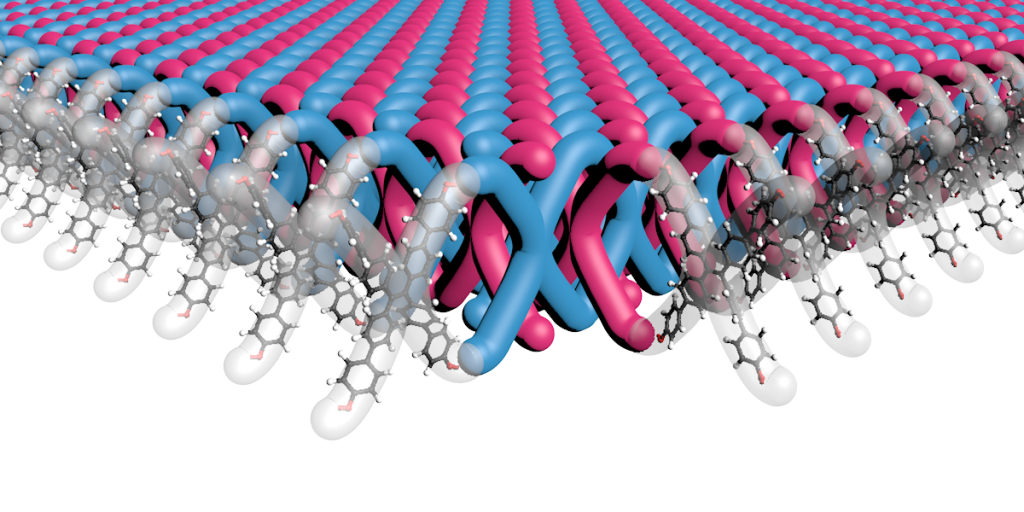Researchers supported by grants and instrumentation provided by the U.S. National Science Foundation have created the first 2D polymer material that mechanically interlocks, much like chainmail, and used an advanced imaging technique to show its microscopic details. The material combines exceptional strength and flexibility and could be developed into high-performance and lightweight body armor that moves fluidly with the body as it protects it.
The nanoscale material was developed by researchers at Northwestern University, and the electron microscopy was conducted at Cornell University. The results are published in a paper in Science.


